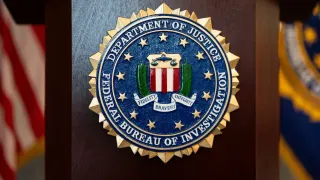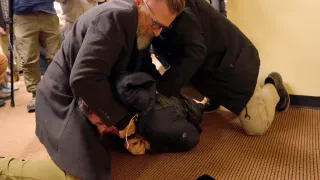June 10, 2017
Classic Movie Channel Honors Gays
David-Elijah Nahmod READ TIME: 3 MIN.
Turner Classic Movies (TCM) celebrates Pride through June by recalling the lives and works of actors and filmmakers who dared to be openly gay during Hollywood's Golden Age. Each Thursday in June, TCM presents "Gay Hollywood." Host Dave Karger interviews gay film historian William Mann about the lives of LGBT people who managed to live authentic lives while making their mark in the cinema capital. The series will show films these trailblazers left behind.
"Gay Hollywood" began on June 1 as Mann recalled the life of William Haines, 1930's top box-office star. Also honored that night was openly gay filmmaker James Whale, today best remembered for his horror films, including "Bride of Frankenstein" (1935) and "The Old Dark House" (1932), both filled with hard-to-miss gay subtext.
Mann told the B.A.R. that TCM approached him about being part of the network's Pride celebration. "I was thrilled to do so," Mann said. "I've long been a huge fan of TCM, and the late [TCM host] Robert Osborne was very kind to me early in my career. So I was honored to be asked to join the TCM family. This is a great group of people who are committed to celebrating LGBT contributions to classic film."
Mann spoke about why so many LGBT people identify with the images they see in classic films. During the 1960s and '70s, it was not unusual to hear gay men say, "[Bette, Joan, Judy or Marilyn] is the woman I want to be."
1930's top box-office star William Haines was gay.
"I think gay men, lesbians and trans people, too, are drawn to the defiance of gender we see in many classic films," Mann explained. "So much of classic Hollywood was done in code, since the Hays Code [the era's censorship board] was in force from 1934 to the early 60s. Gay people are good at reading through the code, so we can see all the sexual innuendo, and the flouting of convention even if, superficially, everyone's playing by the rules."
There was an additional appeal to the era's legendary ladies of the screen. Mann referred to the "soul connection to gay men and these actresses. Davis, Crawford, Hepburn, Dietrich, Garland, West hold all the power, even when the story purports that they don't. Women holding power inspires anyone who is disempowered, because it shows it can be done. These films are filled with magic, too, a sense of a world that's shinier, glossier, more color-coordinated, more fair, more exciting than our own. That appeals to everyone, but in particular to gay people, whose worlds often weren't those things."
The first film shown as part of "Gay Hollywood" was "Just a Gigolo," a 1931 romantic comedy starring William Haines. As Karger posed questions about Haines' life and career, Mann spoke of the actor's refusal to live in the closet. This was tolerated during the pre-Code era, but once the censorship board took control of the film industry, Haines was forced to choose between his career and his lover Jimmie Shields. Haines chose Shields, and the two remained together until Haines' 1973 death from cancer. The couple ran a successful interior design business and were also antique dealers. William Haines Designs remains in business today.
Mann feels it's important to remember Hollywood's gay history, especially in the current political climate of the anti-gay Trump administration.
"When we talk about gay Hollywood, it's important to show that LGBT contributions to American film go right back to the very beginning," he said. "To the silent days, to the first one-reelers shown in nickelodeons. People didn't identify as LGBT then, there was no such thing as being out or in the closet. But gay, lesbian, bi and trans people were there, living their lives, forming relationships, sometimes being punished for those relationships, sometimes not. Along the way they were making films: Acting in them, directing them, writing them, designing them, costuming them, producing them, publicizing them."
Mann urges viewers to keep their DVRs running after he and Karger go off the air. "Karger and I talk about the first three films each night, but the films continue until daybreak," he said. "There are so many films we don't get to talk about, from [1930s lesbian director] Dorothy Arzner, [gay director] Mitchell Leisen, [gay actor] George Nader, and many others. But we do get to talk about Billy Haines and George Cukor, James Whale, Montgomery Clift, Linda Hunt and others. It's quite the eclectic group of movies, but that's what makes a series like this so fun. It also shows how wide-ranging the LGBT experience in classic film was, from dramas to comedies, action pictures to romances, mysteries to musicals."
TCM's June schedule is at tcm.com






